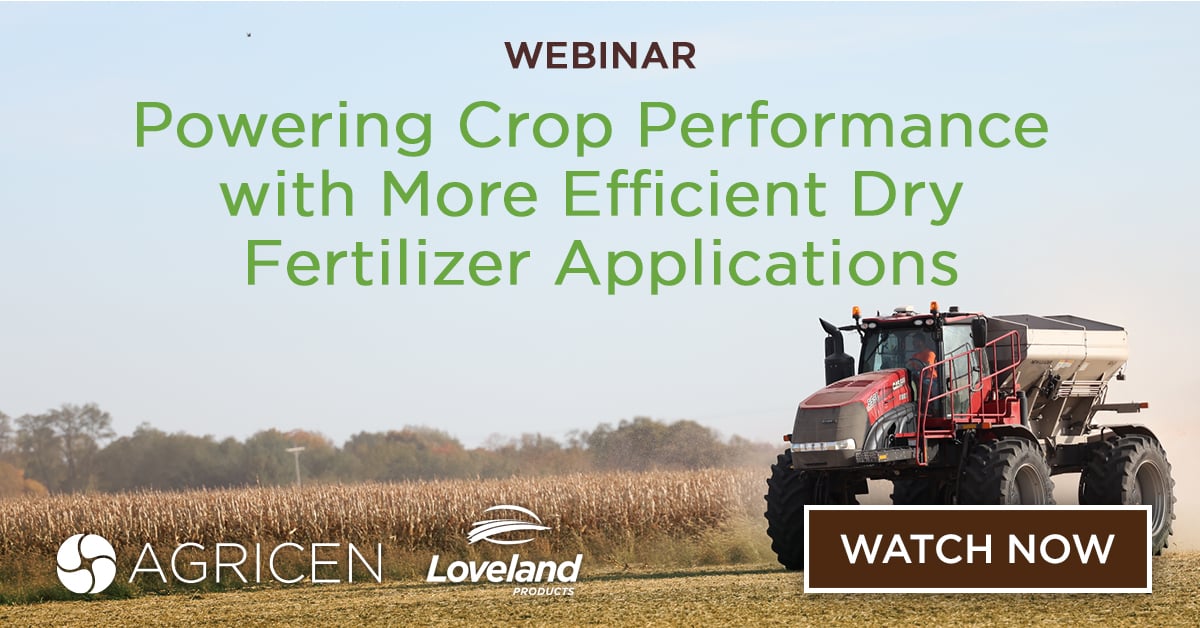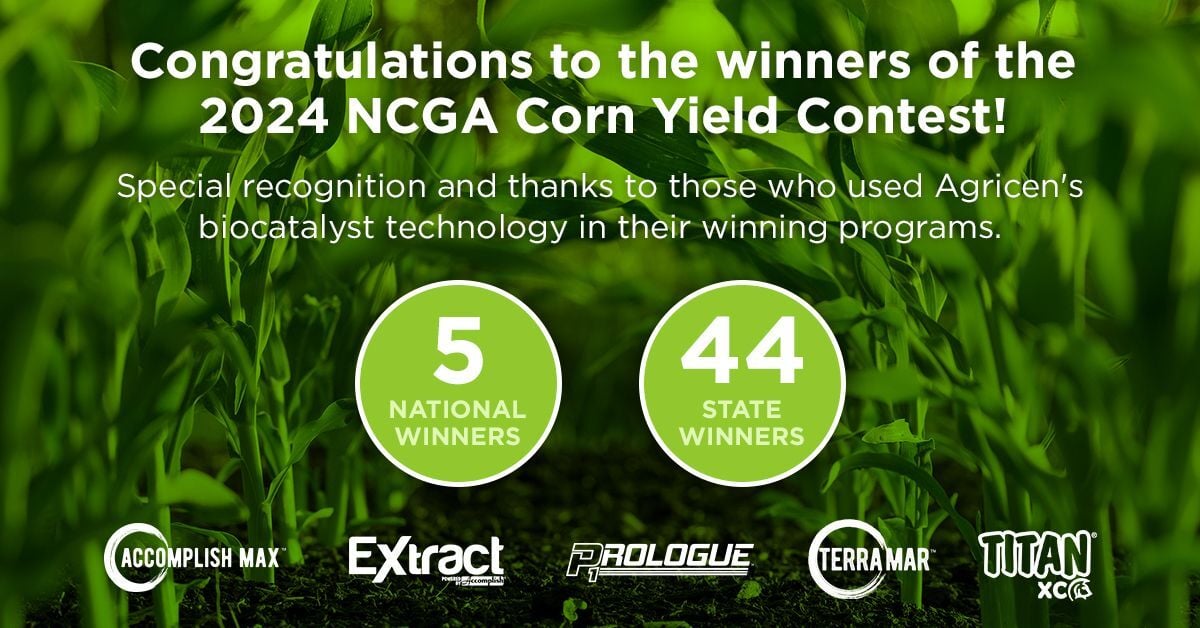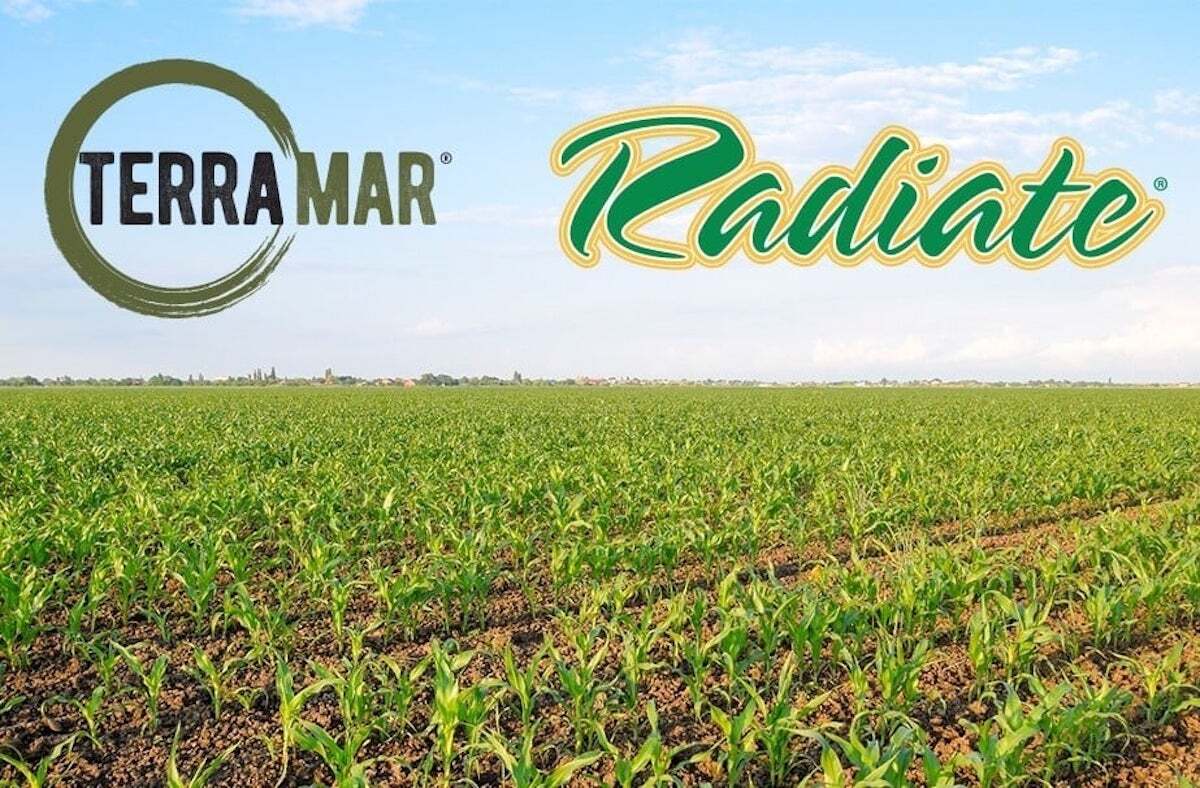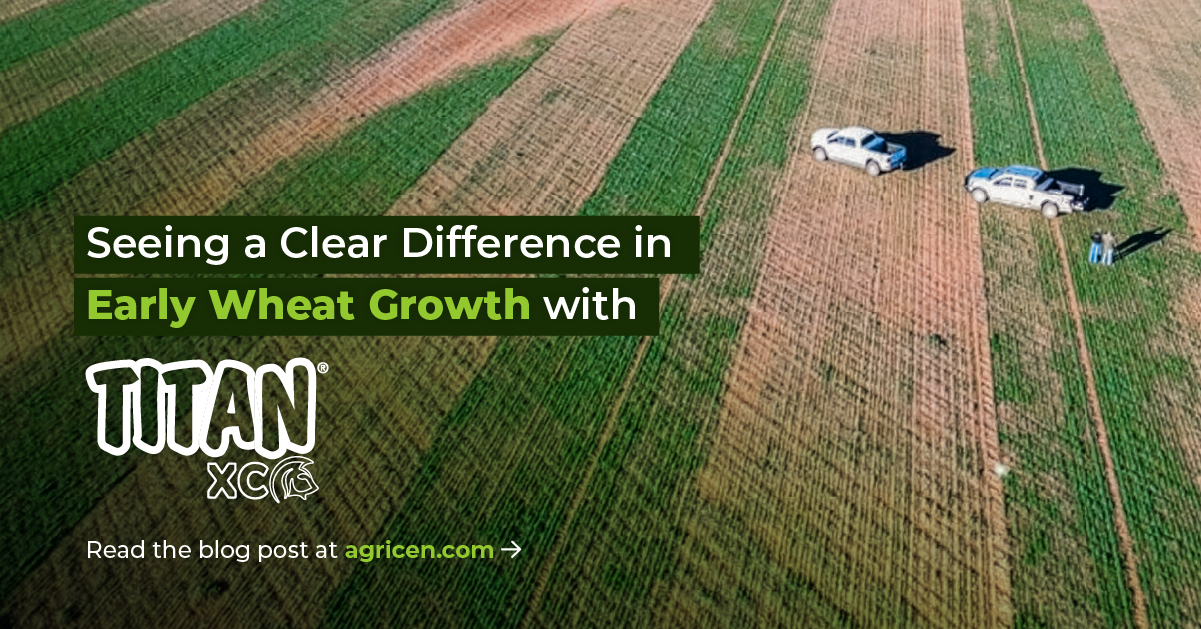 Making Every Dollar Count This Spring with New EXTRACT XC 🌱
Making Every Dollar Count This Spring with New EXTRACT XC 🌱
With spring planting approaching, Agricen’s Scott Lay spoke with Dennis Michelsen of WITY Radio about new EXTRACT XC, and how it can help farmers ensure that every dollar they spend on fertility inputs makes a bigger impact this season.
Dennis - WITY Radio: We've talked about the EXTRACT product line before, but EXTRACT XC is a slightly different version of a product that we know works well.
Scott - Agricen: EXTRACT is a nutrient mineralization technology that has been on the market since 2017. The new iteration, EXTRACT XC, is the same technology, but twice as concentrated for simpler handing, while still delivering the same yield benefit that farmers have come to expect.
Dennis - WITY Radio: EXTRACT XC can be applied at the same time as other broadcast applications, such as liquid fertilizers, water and pre-plant herbicides. So you're simplifying the process for producers.
Scott - Agricen: As we approach spring, we're targeting that pre-plant or pre-emerge herbicide broadcast application. What we're trying to do with EXTRACT XC is make more nutrients available by mineralizing and releasing more of the nutrients bound in the soil profile. Using a football analogy, if the opening kickoff represents the start of planting season, with EXTRACT XC we're beginning our offense 20 yards farther down the field, closer to the goal line, as a result of increasing the amount of phosphorus, potassium and other nutrients available to the crop.
Dennis - WITY Radio: You describe EXTRACT XC as a biocatalyst for nutrient mineralization and release. Explain why using this kind of product is so important in today's agricultural world.
Scott - Agricen: Farmers don't need to be reminded of the higher cost of fertilizer and diminished commodity prices we're experiencing right now compared to the last two years. Step one for success with any crop is applying the needed nutrients, and that’s certainly something we shouldn’t shortcut. Once those nutrients are applied, step two is figuring out how to get more of the nutrients in a plant-available form to benefit the crop.
That's really the essence of the biocatalyst technology in EXTRACT XC. We're enhancing the level of nutrient availability in the range of 15 to 20% more. That equates to real dollars that farmers will see on the yield monitor as the combine goes across the field in the fall.
Dennis - WITY Radio: We need to be smarter in how we feed the crop at these grain prices.
Scott - Agricen: The more we can make nutrients more available—whether to corn, soybeans, wheat or another crop—the better the consistency and physiological development of that crop, and the better the chance of preserving yield potential. That's what pays the bills.
Dennis - WITY Radio: Can you explain why using EXTRACT XC at different times throughout the growing season will play an important role heading into 2026?
Scott - Agricen: Again, we would like to start at the beginning of the season by using EXTRACT XC with a pre-plant or pre-emergent herbicide application. That's where we kick start the mineralization and release of nutrients.
But we also recognize that the crop’s demand for nutrients increases during the season. Peak nutrient demand in corn is from V10 through a couple weeks after pollination, and in soybeans it’s after bloom stage. So there's another opportunity in which we can apply EXTRACT XC and extend or enhance nutrient availability—for example, by applying it with a liquid sidedress application in corn—to increase crop yield and also get a better return on investment.
On average, we’ve seen a +10-bushel yield increase in corn and a +4.4-bushel increase in soybeans with the EXTRACT technology. That equates to a very consistent positive return on investment.
Dennis - WITY Radio: When you're faced with lower grain prices, a great yield is no longer a luxury. It's a necessity, and return on investment is what it's all about.
Scott - Agricen: The yield monitor doesn't lie. What any farm operation is trained to do is lower the cost of producing each bushel. So you can either spend less and run the risk of decreasing your productivity, or you can increase your yield with a modest investment in something like EXTRACT XC. And that's how greater efficiencies are gained over time.
EXTRACT XC is available from Nutrien Ag Solutions.
This interview was edited for length and clarity. You can listen to the interview below or on Agricen's YouTube channel.





![[Interview] Starting Closer to the Goal Line](https://blog.agricen.com/hubfs/01-26_Social_Blog_Starting%20Closer_v2.jpg)

 Agricen’s Steve Sexton recently had the opportunity to sit down with Jim Engelsma, who was named
Agricen’s Steve Sexton recently had the opportunity to sit down with Jim Engelsma, who was named  Jim:
Jim: 

 How can growers make the most of every pound of dry fertilizer they apply, especially with higher than normal fertilizer costs? One way is to focus on improving the efficiency of dry fertilizers that are spread in the fall or spring.
How can growers make the most of every pound of dry fertilizer they apply, especially with higher than normal fertilizer costs? One way is to focus on improving the efficiency of dry fertilizers that are spread in the fall or spring.
![[Interview] 100 Million Acres Doesn't Happen by Accident](https://blog.agricen.com/hubfs/Interview-100M-acres.jpg)









![[Interview] Keeping Crops on Track to Preserve Yield Potential](https://blog.agricen.com/hubfs/Interview-crop-yield-potential.jpg)
 Agricen’s Scott Lay recently sat with Dennis Michelsen of WITY Radio to discuss using
Agricen’s Scott Lay recently sat with Dennis Michelsen of WITY Radio to discuss using 
 This spring, many growing areas of the United States are coming off an extended period of cooler-than-normal temperatures.
This spring, many growing areas of the United States are coming off an extended period of cooler-than-normal temperatures. 

![[Watch] Preserving Yield Potential with Proactive Foliar Applications](https://blog.agricen.com/hubfs/05-25-Foliar-webinar-1200x628-watch.jpg)






